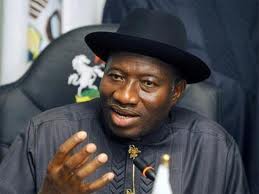The Federal Government on Tuesday, unveiled plans to derive over 50 per cent of its foreign exchange earnings from agro-industrial exports by 2020. The plans are contained in a draft trade policy which was considered and reviewed during a meeting of the Enlarged National Focal Point (ENPF) on trade matters in Abuja.
The meeting chaired by Mr Dauda Kigbo, the Permanent Secretary, Ministry of Trade and Investment was the review of the policy developed in 2002 with a view to making inputs by the various stakeholders. The document said that agriculture was a key economic driver and accounts for some 35 per cent of Gross Domestic Product. It, however, added that agriculture was underdeveloped and inefficient, spite of the large land areas available and favourable agro-ecological environment.
It said that agriculture exports exceeded two billion dollars annually, mainly concentrating on a few unprocessed products while agricultural import of about 3.5 billion dollars were mainly unprocessed food products. The document stated that government was poised to put in place agricultural trade policy aimed at increasing astronomically foreign exchange earnings from agro-industrial exports.
“The policy will ensure free flow of agricultural products within the country,” it said. It added, “it is aimed at encouraging agricultural processing, link with the manufacturing sector, and value addition processes including imports of semi-processes products for further processing.” The agriculture trade policy, according to the document will improve product quality through implementing appropriate standards, operating procedures and enforcing compliance.
“It is also aimed at encouraging exports through improved facilities for handling and storage of export products and establishment of export promotion centres,” it said. The policy, according to the statement, is aimed at improving export market information and provides appropriate incentives including encouragement to investment. “It will also help improve farmers’ access to productivity-enhancing inputs including imported inputs.” The permanent secretary in his remarks said that enlarged national focal point meeting was a body charged with the responsibility of preparing Nigeria position on all trade issues.
He said that the meeting was expected to consider the draft trade policy which had been developed in 2002 with a view to making inputs.
The permanent secretary said that government had put in place certain measures to ensure that the country attained the Vision 2020 goal through trade development. The measures, according to him include ensuring strong and robust tax and fiscal policies to develop trade as basis for rapid, equitable and sustainable growth through broadening the national product base. He said that export policy would be focused on developing markets in ECOWAS and taking advantage of the U.S. African Growth Opportunity Acts (AGOA) and opportunities in other specialised markets.


